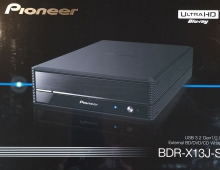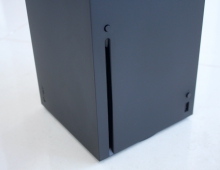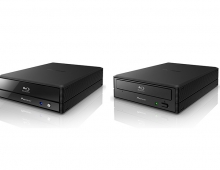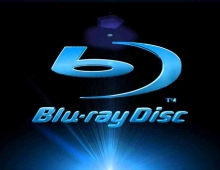
HD DVD and Blu-Ray Progress Update
Without doubt, it is still hard to come up with safe conclusions about which will be the dominant format for the next generation HD content. The various pieces of information coming from the HD DVD and Blu-Ray camps is almost always biased and full of hype, making it difficult for industry observers to get to the real crux of the matter.
The situation is also rather confusing for consumers, and the last thing they need is another set of incompatible formats to sort through, and a heap of money spent on devices in order to use them.
The key to the success of either format appears to be which will secure the support of the movie industry. Although this was an argument for the HD DVD camp some time ago, a recent survey made by the New York Times indicates that studio support is evenly divided between both formats. The Blu-Ray Association has also published the results of another survey, showing that consumers have more readily embraced the Blu-Ray format. According to the results, 58% of people asked, said that they prefer the BD format over rival HD DVD, 26% was undecided while only 16% showed preference for the HD DVD format. The Association claimed that "..the reasons consumers preferred Blu-Ray is the ability to play them in mode CE devices, PC, gaming consoles, its backward compatibility with DVD media and the high capacities it offers for storing video and data..."
However, someone might argue that only the increased capacity of the Blu-ray format is a plus, while a corresponding survey, if it were to be carried out by the HD DVD camp, would almost certainly lead to totally different conclusions.
So, what's the story? Let's see it from the manufacturing side. The current stance of the optical disc replication industry could give us a better indication about the overall progress in this format duel.
It is true that the manufacturing process for HD DVD is similar to that for DVD and theoretically, upgrading the current manufacturing equipment used for DVD is more straightforward. However, it is also true that not all the DVD replication equipment is directly compatible with HD DVD and success is strongly dependent on the quality, accuracy and tolerances of the equipment.
In any case, currently most optical media manufacturers are investing on DVD lines that will be ready for manufacturing both HD DVD and DVD media. This is true of most small replicators, who must wait since they do not know which format will eventually dominate, before investing on the corresponding equipment. For the moment, HD DVD/DVD equipment is a safe way for them to proceed.
Keeping in mind that the specifications of the HD DVD-Video 1.0 have been recently finalized, M2, Unaxis and Singulus have already sold HD DVD replication machines, which offer cost-effective manufacturing of DVD9 and double layer/single layer HD DVD.
Moreover, Japanese Memory-Tech, the biggest supporter of HD DVD, has also installed 7 lines Of DVD/HD DVD replication and believes that their cost is comparable to those of DVD.
On the other hand, big replicators have the chance to invest in both formats simultaneously. Currently, they are negotiating installing new equipment for Blu-Ray, although it seems that they will also play with a single manufacturing line for each format.
Sony claims that major replicators such as Technicolor and Cinram have already installed Sony's Mastering System for BD. With the BD-ROM 1.0, BD-R 1.0 and BD-RW 2.0 expected to be finalized in October, the company believes that the upcoming BD Movies and music videos will accelerate Blu-Ray disk demand.
Philips is also optimistic about the Blu-Ray and expects the first CE devices to be launched early 2006. A PC triple recorder (BD/DVD/CD) has also been scheduled for early next year.
However, both the protection and application layers of the Blu-Ray format have not yet been finalized.
Considering that the production of both recordable HD DVD-R and HD DVD-ROM is similar to DVD, it's possible that some might concede HD DVD a 3-month head start on the market. So we could see an early lead for HD DVD and a possible catch up from Blu-Ray later on, due to its extended capacity roadmap.
The first pre-recorded HD DVDs are expected later this year, available in Japan and the US.
The key to the success of either format appears to be which will secure the support of the movie industry. Although this was an argument for the HD DVD camp some time ago, a recent survey made by the New York Times indicates that studio support is evenly divided between both formats. The Blu-Ray Association has also published the results of another survey, showing that consumers have more readily embraced the Blu-Ray format. According to the results, 58% of people asked, said that they prefer the BD format over rival HD DVD, 26% was undecided while only 16% showed preference for the HD DVD format. The Association claimed that "..the reasons consumers preferred Blu-Ray is the ability to play them in mode CE devices, PC, gaming consoles, its backward compatibility with DVD media and the high capacities it offers for storing video and data..."
However, someone might argue that only the increased capacity of the Blu-ray format is a plus, while a corresponding survey, if it were to be carried out by the HD DVD camp, would almost certainly lead to totally different conclusions.
So, what's the story? Let's see it from the manufacturing side. The current stance of the optical disc replication industry could give us a better indication about the overall progress in this format duel.
It is true that the manufacturing process for HD DVD is similar to that for DVD and theoretically, upgrading the current manufacturing equipment used for DVD is more straightforward. However, it is also true that not all the DVD replication equipment is directly compatible with HD DVD and success is strongly dependent on the quality, accuracy and tolerances of the equipment.
In any case, currently most optical media manufacturers are investing on DVD lines that will be ready for manufacturing both HD DVD and DVD media. This is true of most small replicators, who must wait since they do not know which format will eventually dominate, before investing on the corresponding equipment. For the moment, HD DVD/DVD equipment is a safe way for them to proceed.
Keeping in mind that the specifications of the HD DVD-Video 1.0 have been recently finalized, M2, Unaxis and Singulus have already sold HD DVD replication machines, which offer cost-effective manufacturing of DVD9 and double layer/single layer HD DVD.
Moreover, Japanese Memory-Tech, the biggest supporter of HD DVD, has also installed 7 lines Of DVD/HD DVD replication and believes that their cost is comparable to those of DVD.
On the other hand, big replicators have the chance to invest in both formats simultaneously. Currently, they are negotiating installing new equipment for Blu-Ray, although it seems that they will also play with a single manufacturing line for each format.
Sony claims that major replicators such as Technicolor and Cinram have already installed Sony's Mastering System for BD. With the BD-ROM 1.0, BD-R 1.0 and BD-RW 2.0 expected to be finalized in October, the company believes that the upcoming BD Movies and music videos will accelerate Blu-Ray disk demand.
Philips is also optimistic about the Blu-Ray and expects the first CE devices to be launched early 2006. A PC triple recorder (BD/DVD/CD) has also been scheduled for early next year.
However, both the protection and application layers of the Blu-Ray format have not yet been finalized.
Considering that the production of both recordable HD DVD-R and HD DVD-ROM is similar to DVD, it's possible that some might concede HD DVD a 3-month head start on the market. So we could see an early lead for HD DVD and a possible catch up from Blu-Ray later on, due to its extended capacity roadmap.
The first pre-recorded HD DVDs are expected later this year, available in Japan and the US.





















